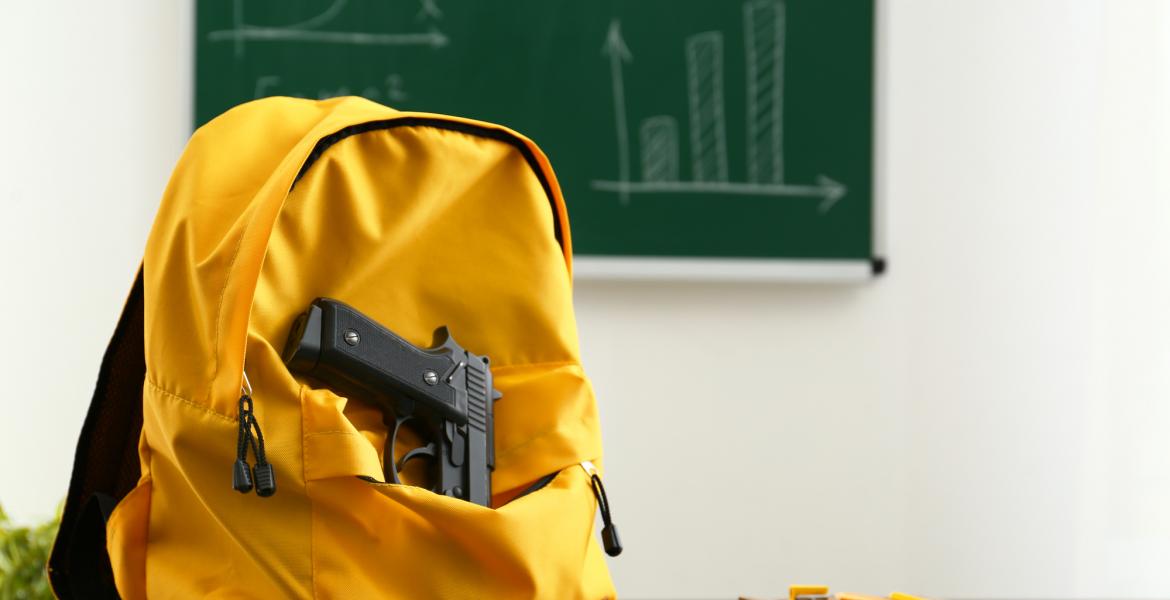Judge Jay Daniel has been working in San Angelo’s Municipal Court for the past 15 years. Monday through Friday, he presides over hearings, bench and jury trials, truancies and no contest pleas. A graduate of ASU with a background in law enforcement, Judge Daniel has a wide range of experience, but his real passion is teaching the public about the laws and learning from others in the process.
His career in law enforcement began on a dare when he called the Dallas Police Department about a recruitment ad, he said. The woman he spoke to was an officer from Rankin, and after a few minutes, the two determined they had many friends in common from his college days at ASU.
“She said, ‘Man, just come down and try the physical part of it,’” he recalled. “I was always up for a physical challenge, so I did and at that time they did the physical assessment at 106 S. Harwood. Part of where you did your test was where Jack Ruby shot Lee Oswald. It looks exactly the same. That part kind of captured me.”
Judge Daniel stayed with the Dallas Police Department for four years before he and his family decided to move back to San Angelo. Once here, he took on a job in the San Angelo Police Department’s Criminal Investigations Division (CID) working cases on juvenile delinquents.
“A big part of dealing with juveniles is making sure they’re taken care of properly,” he said. “There’s a lot of hoops you have to jump through with juveniles that you don’t with adults. Detectives are required to bring them (juveniles) to a third party, basically, a magistrate. Before they can talk to or get a statement from a juvenile, they have to take them to a judge. Any judge can do it, but it’s usually municipal judges or JPs (justice of the peace).”
Through his work with juveniles in CID, Judge Daniel had regular contact with presiding Judge Gilbert, and when a position opened up, he was encouraged to apply. Daniel had spent a total of nine years as an officer before he made the transition to judge, worked as both a detective and a member of the SWAT Team, but says he never regretted making the choice to switch careers.
“You just never know what you’re going to be dealing with or talking to,” he said, “but you hope that they come away with the knowledge and you try to do away with or eliminate some of the misconceptions."
As opposed to the higher courts, Judge Daniel’s court is unique in that he handles only Class C Misdemeanors, which carry a maximum fine of $500. Because there is no jail time on the line, the court does not appoint attorneys, meaning defendants who go to trial are responsible for all aspects of their own defense.
The court provides defendants with a packet outlining what they are permitted to do in court and some guidelines for the trial. Some of those that appear are very well prepared and do win their cases, Judge Daniel said, while others make it obvious they never opened the packet. A third type, Judge Daniel said, is those who get tips from their neighbors, television shows or websites boasting ‘How to Beat a Ticket’, and either try to get the judge to throw the case out, attempt to find technical loopholes or employ strange and ineffective lines of questioning, such as asking an officer if he knows how a radar gun works.
“They go in and say, ‘I plea not guilty because my car is not tan, it’s a light army brown,’” he says as example, adding that technicalities like these are often dismissed on television shows. “Well, that doesn’t have anything to do with it. The complaint is going to say you were on this road, you’re the driver, you’re going this speed and you’re in the city of San Angelo. That’s all they have to prove.”
One of the most common misconceptions, however, is that the judge has overreaching power. Citing a number of crime and punishment centered shows on the television, Judge Daniel said, “It gets to the end and the judge in the show says, ‘You know, I know what the law says and in this case I’m going to do this’. Well, that doesn’t happen. That’s just not something that’s in our bag of tricks…as far discretionary, ‘we’re just going to let this one go’, it just isn’t there."
While most of his cases circulate around traffic and other minor offenses, Daniel said his preference is working with juveniles. He said that contrary to what most people believe, when juveniles appear in his courtroom he doesn't see them as next-generation criminals, but rather as kids who have made mistakes whom he tries to help get back on the right track.
"I like dealing with kids," he said. "You go in and you deal with a room full of good kids that made a mistake and have the opportunity to learn from them and move on. If they were really bad kids, they wouldn’t be in our court, they’d be in the district court, they’d be in the JJC."
Judge Jay Daniel's docket is filled with a variety of trials and hearings, and he said that the number of truancies he's hearing has dropped over recent years. Juried trials are held as well in the Municipal Court, he said, however a slim docket keeps those trials down to one day a month. These, too, are a learning experience, Daniel said, as jurors provide feedback and ask questions that indicate areas of concern or misconception.
“Ninety-nine percent of the time when they leave they’re thanking us for the opportunity, learned something, appreciated it, and we learn stuff from them too," he says of the juries. “We get feedback from them as well, and then at the end of the day…we ask them if they have any questions and 90 percent of the time [they do].
“I love them,” he continued. “I look forward to them. There’s a little bit more stress and you have to be on your toes a little bit more, you have to be more formal, but like I said, if you walk out of there without learning something, you weren’t there.”
Subscribe to the LIVE! Daily
Required






Post a comment to this article here: